Call us to place your order +254 721 510369 | +254 736 325749
The Amazing Health Benefits of Consuming Sesame Seeds and Sesame Oil

Sesame (Sesamum indicum) is one of the oldest cultivated plants in the world, prized as an oilseed for at least 5,000 years. Sesame seeds are tiny, oil-rich seeds that grow in pods on the Sesamum indicum plant. Unhulled seeds have the outer, edible husk intact, while hulled seeds come without the husk. The hull gives the seeds a golden-brown hue. Hulled seeds have an off-white color but turn brown when roasted.
To maximize protein availability, opt for hulled, roasted sesame seeds. The hulling and roasting processes reduce oxalates and phytates — compounds that hamper your digestion and absorption of protein.
Sesame is known for its nutritional value, and is exceptionally high content of magnesium and calcium. It is also one of the most potent medicinal foods commonly consumed today.
Sesame seeds consist of 15% saturated fat, 41% polyunsaturated fat, and 39% monounsaturated fat. Research indicates that eating more polyunsaturated and monounsaturated fat relative to saturated fat helps lower your cholesterol and reduce heart disease risk. Additionally, sesame seeds contain two types of plant compounds — lignans and phytosterols — that also have cholesterol-lowering effects.
When 38 people with high blood lipids ate 5 tablespoons (40 grams) of hulled sesame seeds daily for 2 months, they experienced a 10% reduction in “bad” LDL cholesterol and an 8% reduction in triglycerides compared to the placebo group
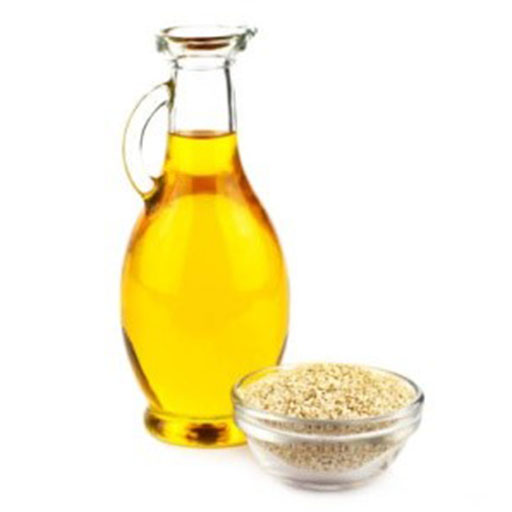
Sesame is known for its nutritional value, and is exceptionally high content of magnesium and calcium. It is also one of the most potent medicinal foods commonly consumed today.
This plant was revered as a medicine back 3600 years ago in Ancient Egypt, as it appears listed in the scrolls of Ebers.
Women in ancient Babylon were believed to use a mixture of honey an sesame seeds to enhance beauty and youth. Roman soldiers would consume a similar mixture for strength and endurance.
In the past twenty years science has established a myriad of healing properties of both the sesame seeds and its oil.
Sesame seeds are a good source of healthy fats, protein, B vitamins, minerals, fiber, antioxidants, and other beneficial plant compounds. Regularly eating substantial portions of these seeds — not just an occasional sprinkling on a burger bun — may aid blood sugar control, combat arthritis pain, and lower cholesterol, among other benefits.
The following are some of the science-based properties attributed to sesame:
- Diabetes: A study published in 2011 in the Clinical Journal of Nutrition showed that sesame oil improved the effectiveness of the oral antidiabetic drug glibenclamide in type 2 diabetic patients. [1] Another study published in 2006 in the Journal of Medicinal Foods showed that the substitution of sesame seed oil as the sole edible oil lowers blood pressure and glucose in hypertensive diabetics.


2. Sesame seeds are low in carbs while high in protein and healthy fats — all of which may support blood sugar control Additionally, these seeds contain pinoresinol, a compound that may help regulate blood sugar by inhibiting the action of the digestive enzyme maltase. Maltase breaks down the sugar maltose, which is used as a sweetener for some food products. It’s also produced in your gut from the digestion of starchy foods like bread and pasta.
If pinoresinol inhibits your digestion of maltose, this may result in lower blood sugar levels.
- High Blood Pressure: A study published in 2006 in the Yale Journal of Biological Medicine showed that sesame seed oil has a beneficial effect in hypertensive patients on either diuretics or beta-blockers. Substitution of all dietary oils with sesame oil brought down systolic and dystolic blood pressure to normal, in addition to decreasing lipid peroxidation (bodily rancidity) and antioxidant status.
One of the compounds identified behind sesame seeds’ antihypertensive effects are peptides that act as angiotensin I-converting enzyme inhibitors. Sesame seeds are high in magnesium, which may also contribute to lower blood pressure. Additionally, their high contents of lignans, vitamin E and other antioxidants in sesame seeds may help prevent plaque buildup in your arteries, potentially maintaining healthy blood pressure
- Gingivitis/Dental Plaque: Sesame seed oil has been used for oral health for thousands of years in the traditional Indian medical tradition known as Ayurveda in a process known as “oil pulling.” It involves swishing sesame seed oil in the mouth for prolonged durations and has been said to prevent teeth decay, halitosis, bleeding gums, dry throat, and for strengthening the teeth, gums and jaw. Clinical research now confirms that it compares favorably to chemical mouthwash (chlorhexidine) in improving plaque-induced gingivitis, and that it is capable of reducing Streptococcus mutans growth associated with oral plaque formation.
- Infant Health/Massage Oil: A study published in the Indian Journal of Medical Research in 2000 showed that massaging infants with sesame oil improved both their growth and post-massage sleep, in comparison to control oils such as mineral oil.
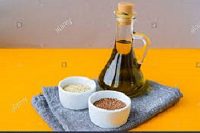
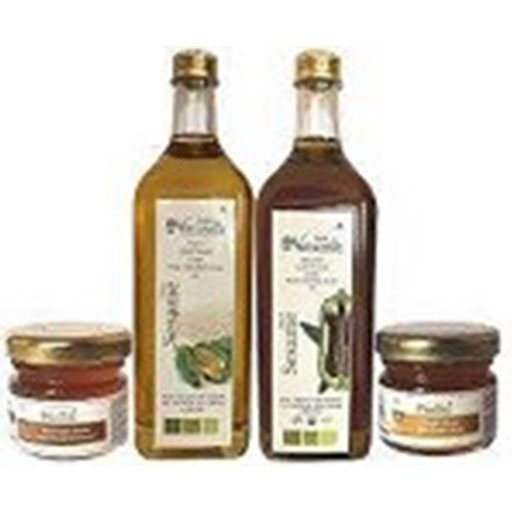
- Multiple Sclerosis (MS): In the animal model of MS, also known as experimental autoimmune encephalomyelitis, sesame seed oil protects mice from developing the disease by reducing IFN-gamma secretion, a key factor in initiating autoimmune inflammation and injury in the nervous system. It has also been research for its potential beneficial role in another neurodegenerative condition, Huntington’s disease.
- Antibiotic-Induced Kidney Damage: Sesame seed oil protects against gentamicin-induced kidney damage in rats by reducing oxidative damage caused by the antibiotic.
- Atherosclerosis: Sesame seed oil prevents the formation of atherosclerotic lesions in mice fed an atherogenic diet.[11] The antioxidant and anti-inflammatory lignan found within sesame seeds known as sesamol has been identified to be partially responsible for its anti-atherogenic properties. In fact, sesamol has been shown to possess over two dozen beneficial pharmacologically active properties, many of which may contribute to improving cardiovascular health.
- Depression: The sesame lignin sesamol was shown to exert an antidepressant-like effect in behavioral despair in chronically stressed mice, specifically by modulating oxidative-nitrosative stress and inflammation.

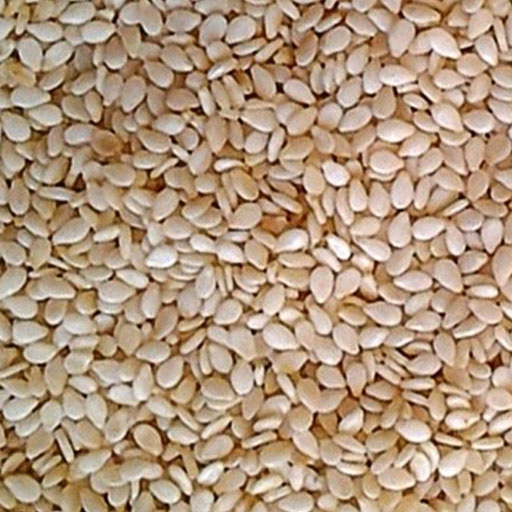
- Radiation-Induced DNA Damage: Sesamol has been shown to protect against gamma radiation-induced DNA damage, likely through its antioxidant properties. [13] It is capable of reducing mortality in radiation treated mice, in part through preventing intestinal and spleen damage.[14] When compared to another powerful antioxidant, melatonin, it was found 20 times more effective as a free radical scavenger.
- Cancer: Sesame contains a fat-soluble lignin with phytoestrogenic properties known as sesamin, and which has been studied for inhibiting the proliferation of a wide range of cancer cells, including:
- Leukemia
- Multiple Myleoma
- Colon Cancer
- Prostate Cancer
- Breast Cancer
- Lung Cancer
- Pancreatic Cancer
- Lung Cancer
Sesamin’s anticancer effects have been linked to the NF-kappaB signaling. Sesame’s lignan content may actually be superior to flaxseed.
11.Good Source of Fiber: Three tablespoons (30 grams) of unhulled sesame seeds provide 3.5 grams of fiber, which is 12% of the Reference Daily Intake (RDI) Since the average fiber intake in the developed world is only half of the RDI, eating sesame seeds regularly could help increase your fiber intake .Fiber is well known for supporting digestive health. Additionally, growing evidence suggests that fiber may play a role in reducing your risk of heart disease, certain cancers, obesity, and type 2 diabetes
12.Good source of quality protein: Sesame seeds supply 5 grams of protein per 3-tablespoon (30-gram) serving .
Notably, sesame seeds are low in lysine, an essential amino acid more abundant in animal products. However, vegans and vegetarians can compensate by consuming high-lysine plant proteins — particularly legumes, such as kidney beans and chickpeas
On the other hand, sesame seeds are high in methionine and cysteine, two amino acids that legumes don’t provide in large amounts
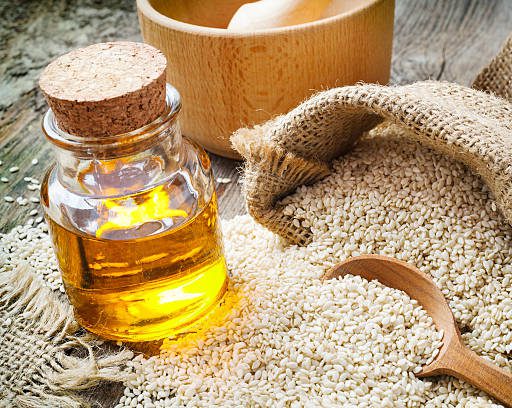

13.They support healthy bones: Sesame seeds — both hulled and unhulled — are rich in several nutrients that boost bone health, though the calcium is mainly in the hull.However, sesame seeds contain natural compounds called oxalates and phytates, antinutrients that reduce the absorption of these minerals. To limit these compounds’ impact, try soaking, roasting, or sprouting the seeds.One study found that sprouting reduced phytate and oxalate concentration by about 50% in both hulled and unhulled sesame seeds.
14.They reduce inflammation: Long-term, low-level inflammation may play a role in many chronic conditions, including obesity and cancer, as well as heart and kidney disease .When people with kidney disease ate a mixture of 18 grams of flax seeds and 6 grams each of sesame and pumpkin seeds daily for 3 months, their inflammatory markers dropped 51‒79% .
However, because this study tested a mixture of seeds, the anti-inflammatory impact of sesame seeds alone is uncertain. Still, animal studies of sesame seed oil also suggest anti-inflammatory effects .
This may be due to sesamin, a compound found in sesame seeds and their oil.
15. Good Source of B Vitamins: B vitamins are essential for many bodily processes, including proper cell function and metabolism. Sesame seeds are a good source of thiamine, niacin, and vitamin B6, which are necessary for proper cellular function and metabolism. These nutrients are distributed both in the hull and seed. Removing the hull may either concentrate or remove some of the B vitamins.
16. They aid Blood cell production : To make red blood cells, your body needs several nutrients — including ones found in sesame seeds. Indeed, sesame seeds supply iron, copper, and vitamin B6, essential elements to produce haemoglobin, the basic component of blood cells and their function.
17.They are rich in antioxidants : Animal and human studies suggest that consuming sesame seeds may increase the overall amount of antioxidant activity in your blood .
The lignans in sesame seeds function as antioxidants, which help fight oxidative stress — a chemical reaction that may damage your cells and increase your risk of many chronic diseases
Additionally, sesame seeds contain a form of vitamin E called gamma-tocopherol, an antioxidant that may be especially protective against heart disease .


18. They support the Immune System: Sesame seeds are a good source of several nutrients that are important for immune system function, including zinc, selenium, copper, iron, vitamin B6, and vitamin E.Bottom of Form
For example, your body needs zinc to develop and activate certain white blood cells that recognize and attack invading microbes. Keep in mind that even mild to moderate zinc deficiency can impair immune system activity Sesame seeds supply about 20% of the RDI for zinc in a 3-tablespoon (30-gram) serving .
19 .They help with osteoarthritis, reducing pain: Osteoarthritis is the most common cause of joint pain. Several factors may play a role in this disease, including inflammation and oxidative damage to the cartilage that cushions joints. Sesamin, a compound in sesame seeds, has anti-inflammatory and antioxidant effects that may protect your cartilage In a 2-month study, people with knee arthritis ate 5 tablespoons (40 grams) of sesame seed powder daily alongside drug therapy. They experienced a 63% decrease in knee pain compared to only a 22% decrease for the group on drug therapy alone. Additionally, the sesame seed group showed greater improvement in a simple mobility test and larger reductions in certain inflammatory markers compared to the control group.
Top of FormSesamin, a compound in sesame seeds, has anti-inflammatory and antioxidant effects that may protect your cartilage In a 2-month study, people with knee arthritis ate 5 tablespoons (40 grams) of sesame seed powder daily alongside drug therapy. They experienced a 63% decrease in knee pain compared to only a 22% decrease for the group on drug therapy alone. Additionally, the sesame seed group showed greater improvement in a simple mobility test and larger reductions in certain inflammatory markers compared to the control group.
20.They support Thyroid Health :Sesame seeds are a good source of selenium, supplying 18% of the RDI in both unhulled and hulled seeds Your thyroid gland contains the highest concentration of selenium of any organ in your body. This mineral plays a vital role in making thyroid hormones
In addition, sesame seeds are a good source of iron, copper, zinc, and vitamin B6, which also support the production of thyroid hormones and aid thyroid health.


21.They aid Hormone Balance during Menopause: Sesame seeds contain phytoestrogens, plant compounds that are similar to the hormone estrogen. Therefore, sesame seeds might be beneficial for women when estrogen levels drop during menopause. For example, phytoestrogens may help counteract hot flashes and other symptoms of low estrogen . What’s more, these compounds may decrease your risk of certain diseases — such as breast cancer — during menopause. .
Some comparison on nutritional value of hulled versus unhulled sesame seeds:
Three tablespoons (30 grams) of sesame seeds contain:

Additionally, three tablespoons (30 grams) of unhulled and hulled sesame seeds provide:

Some Tips on how to easily add them to your diet:
Sesame seeds can give a nutty flavour and subtle crunch to many dishes.To enhance the flavour and nutrient availability of sesame seeds, roast them at 350℉ (180℃) for a few minutes, stirring periodically, until they reach a light, golden brown.Soaked, roasted, or sprouted sesame seeds optimizes your nutritional intake , as any of the mentioned processes increases absorption of nutrients.
Tahini and sesame flour are other products made out of sesame seeds.
Try adding sesame seeds to:
- stir-fries
- steamed broccoli, cauliflower or any other veggies.
- hot or cold cereal
- granola and granola bars
- bread and muffins
- crackers
- kefir, yogurt
- smoothies
- salads
- salad dressing
- hummus
- garnishes
Additionally, you can use sesame seed butter — also known as tahini — in place of peanut butter .Ground sesame seeds — called sesame flour or sesame seed meal — can be used in baking, smoothies, fish batter, and more. However, sesame allergies have become more prevalent, so you may need to take caution when cooking for groups
For more information tune to:
https://www.youtube.com/watch?v=gvQtuh0p1TA
https://www.youtube.com/watch?v=IKSJTfO157k
https://www.youtube.com/watch?v=glfltVU08sA
https://www.youtube.com/watch?v=lnsnnncrqac
https://www.youtube.com/watch?v=xAoZmapMKZY
https://www.youtube.com/watch?v=B773GN0et8Q
References
[1] Sesame oil exhibits synergistic effect with anti-diabetic medication in patients with type 2 diabetes mellitus. Clin Nutr. 2011 Jun ;30(3):351-8. Epub 2010 Dec 16. PMID: 21163558
[2] A pilot study of open label sesame oil in hypertensive diabetics. J Med Food. 2006 Fall;9(3):408-12. PMID: 17004907
[3] Effect of sesame oil on diuretics or Beta-blockers in the modulation of blood pressure, anthropometry, lipid profile, and redox status. Yale J Biol Med. 2006 Mar;79(1):19-26. PMID: 17876372
[4] Antihypertensive effect of angiotensin I-converting enzyme inhibitory peptides from a sesame protein hydrolysate in spontaneously hypertensive rats. Biosci Biotechnol Biochem. 2006 May;70(5):1118-26. PMID: 16717411
[5] Effect of oil pulling on plaque induced gingivitis: a randomized, controlled, triple-blind study. Indian J Dent Res. 2009 Jan-Mar;20(1):47-51. PMID: 19336860
[6] Effect of oil pulling on Streptococcus mutans count in plaque and saliva using Dentocult SM Strip mutans test: a randomized, controlled, triple-blind study. J Indian Soc Pedod Prev Dent. 2008 Mar;26(1):12-7. PMID: 18408265
[7] Effects of massage&use of oil on growth, blood flow&sleep pattern in infants. Indian J Med Res. 2000 Dec;112:212-7. PMID: 11247199
[8] The Mechanism of Sesame Oil in Ameliorating Experimental Autoimmune Encephalomyelitis in C57BL/6 Mice. Phytother Res. 2011 Apr 28. Epub 2011 Apr 28. PMID: 21538630
[9] Sesamol attenuate 3-nitropropionic acid-induced Huntington-like behavioral, biochemical, and cellular alterations in rats. J Asian Nat Prod Res. 2009 ;11(5):439-50. PMID: 19504387
[10] Protective effect of daily sesame oil supplement on gentamicin-induced renal injury in rats. Biol Pharm Bull. 2001 Feb;24(2):181-7. PMID: 19487986
[11] Inhibition of atherosclerosis in low-density lipoprotein receptor-negative mice by sesame oil. J Med Food. 2006 Winter;9(4) PMID: 17201634
[12] Neuropsychopharmacological effect of sesamol in unpredictable chronic mild stress model of depression: behavioral and biochemical evidences. Psychopharmacology (Berl). 2011 Apr ;214(4):819-28. Epub 2010 Nov 20. PMID: 21103863
[13] Antioxidant potential of sesamol and its role on radiation-induced DNA damage in whole-body irradiated Swiss albino mice. Environ Toxicol Pharmacol. 2009 Sep ;28(2):192-7. Epub 2009 Apr 11. PMID: 21784002
[14] Effect of sesamol on radiation-induced cytotoxicity in Swiss albino mice. Mutat Res. 2006 Dec 10 ;611(1-2):9-16. Epub 2006 Oct 11. PMID: 17045515
[15] Sesamol as a Potential Radioprotective Agent: In Vitro Studies. Radiat Res. 2011 Sep 7. Epub 2011 Sep 7. PMID: 21899433
Disclaimer
This content is strictly the opinion of its author and is meant for informational and educational purposes only. It is not intended to provide medical advice or to take the place of medical advice , diagnosis or treatment from a personal physician.
Readers of this content are advised to consult their doctors or qualified health professionals regarding specific health questions. Neither the author nor publisher of this content takes responsibility for possible health consequences of any person or persons reading or following the information in this educational content.
All readers of this content, especially those taking prescription or over-the-counter medications, should consult their physicians before beginning any nutrition or supplement or lifestyle programme.



